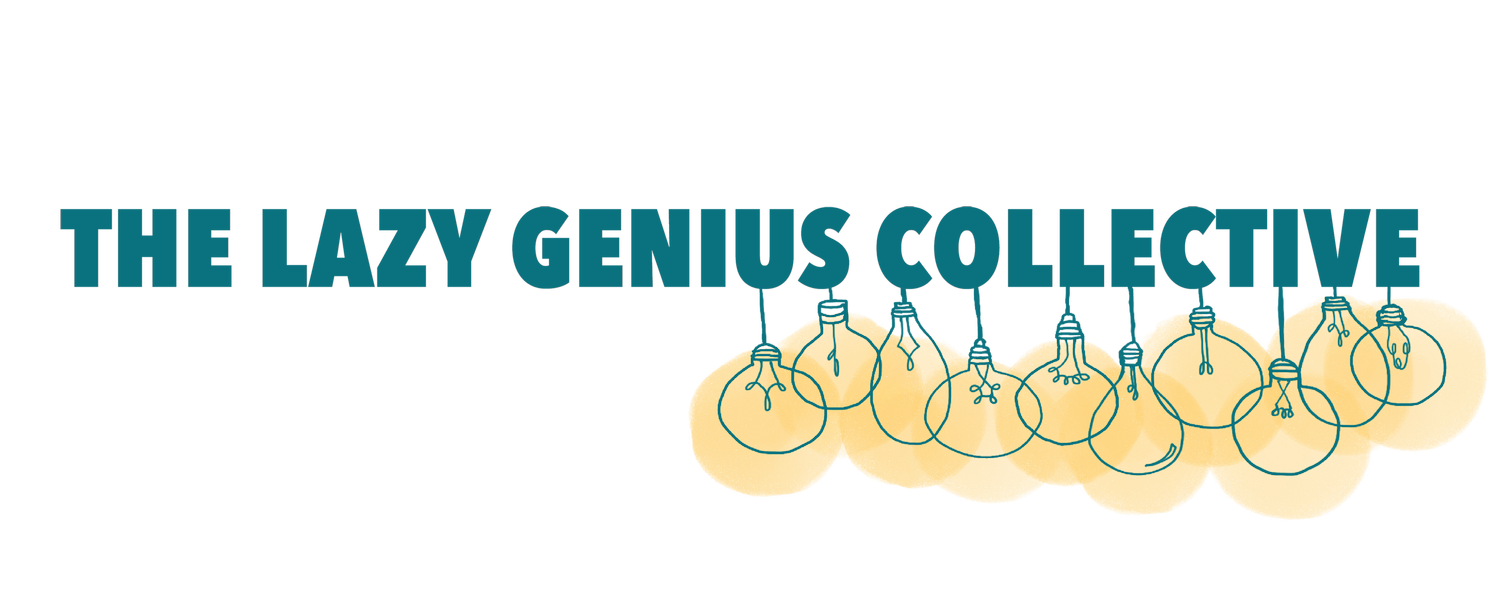#125 The Lazy Genius Asks for Help
Sometimes asking for help is the hardest thing to do, but you’re allowed to ask for help, no matter the circumstance. It’s good, in fact, to ask for help. And today, we’re talking about the ways to do it – the different kinds of therapy and different reasons why or why not you might pursue them. Plus, I talk about how to be a good friend to someone else who needs help. It’s a heavy topic, but one that I want to join in the flow of normalizing it.
Helpful Companion Links
My friend, Laura Tremaine, hosts the 10 Things To Tell You podcast and normalizes therapy and mental health struggles in her Internet space. Check out her Instagram highlights or listen to her podcast. I suggest starting with the episode called 10 Thoughts on Anxiety.
Lazy Genius mascot and all-around beloved person Emily P. Freeman talks about how to be a good listener on her podcast The Next Right Thing in episode 94 called Ask the Second Question.
The Liturgists podcast recently released a series of episodes on the Enneagram, specifically about the instinctual postures and the 27 subtypes. If that makes no sense to you but you’re interested in learning about the Enneagram, I have two episodes about it: The Truth About Your Enneagram Number and How to Make Sense of Yourself.
The National Institute of Mental Health has a comprehensive overview of crisis hotlines and how to get started in finding a mental health provider in your area on their website.
HelpGuide created a resource that includes practical tips on therapy and accessing mental health care, especially online. View the guide here.
Grab a copy of my book The Lazy Genius Kitchen or The Lazy Genius Way! (Affiliate links)
October 3, 2019 Update: Some Lazy Genius listeners chimed in with some thoughtful commentary on terms and distinctions not included in this episode. I’ve listed them below:
“In California, my official title is Licensed Marriage and Family Therapist. In my state, all therapists have to have a minimum of a master's degree plus supervised 3000 intern hours in order to be eligible for Licensure. I know all states have different titles for various offerings of mental health professions. The description you gave of counselors in the episode is what my training was, but we are known as therapists where I live. I thought it might be helpful for your audience to know that the area they live in may use different titles as they explore their options.”
“Psychiatrists have a MD, not a PhD (although of course, some may have PhDs in another field). They go through medical school and a psychiatric residency.”
“I am a clinical social worker, and beyond my master’s degree in social work, I had to get about 2,000 supervised hours, and pass a test at a clinical level. For most social workers who do not want to teach at college or do research/get a PhD, this is the highest level we attain to. Social work is a strengths-based area, instead of deficiency based, as some areas are.”
